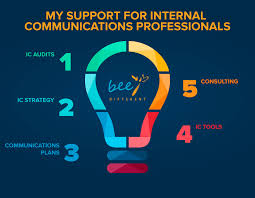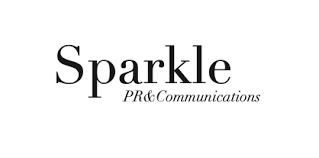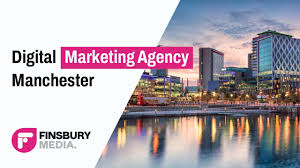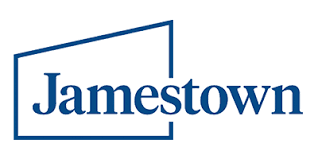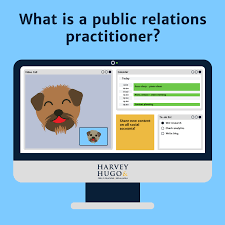The Role and Importance of a Public Relations Practitioner
In today’s fast-paced and interconnected world, effective communication is vital for businesses and organizations to thrive. This is where the role of a skilled public relations (PR) practitioner comes into play. A PR practitioner is a professional who specializes in managing the reputation and communication efforts of an individual, company, or organization.
One of the primary responsibilities of a PR practitioner is to cultivate and maintain positive relationships between their clients and the public. They act as the bridge between the organization and its stakeholders, including customers, employees, investors, media outlets, and the general public. By implementing strategic communication plans, PR practitioners enhance brand image, build trust, and establish credibility for their clients.
A key aspect of a PR practitioner’s work involves crafting compelling messages that effectively convey their client’s values, objectives, and key messages to target audiences. They employ various communication channels such as press releases, media interviews, social media platforms, events, and community engagement initiatives to disseminate information in a timely manner.
Furthermore, PR practitioners play a crucial role in managing crises and mitigating potential reputational damage. They are skilled at assessing risks and developing crisis communication strategies that help organizations navigate challenging situations with transparency and integrity. By providing timely updates and addressing concerns proactively, they can help protect an organization’s reputation during times of crisis.
The digital age has revolutionized the field of public relations. PR practitioners now have access to an array of online tools and platforms that enable them to monitor conversations about their clients in real-time. They use social media listening tools to gauge public sentiment towards their clients’ brands or issues relevant to them. This allows them to respond promptly to emerging trends or address any misconceptions swiftly.
In addition to managing external communications, PR practitioners also work closely with internal stakeholders within an organization. They provide guidance on effective internal communications strategies that foster employee engagement and alignment with organizational goals. By keeping employees well-informed and motivated, PR practitioners contribute to a positive workplace culture and enhance overall organizational performance.
The role of a PR practitioner is dynamic and ever-evolving. They must stay abreast of current trends, emerging technologies, and changes in the media landscape. Continuous learning and professional development are essential for PR practitioners to remain effective in their roles.
In conclusion, a skilled public relations practitioner is an invaluable asset to any organization. They possess the expertise to shape public perception, manage reputation, and navigate complex communication challenges. By leveraging their strategic skills and deep understanding of the media landscape, PR practitioners help organizations build strong relationships with stakeholders, enhance brand image, and ultimately achieve their communication goals.
6 Essential Tips for Public Relations Practitioners in the UK
- Understand your target audience
- Develop relationships
- Monitor the news
- Utilise digital tools
- Stay organised
- Be creative
Understand your target audience
Understanding Your Target Audience: A Key Tip for Public Relations Practitioners
In the world of public relations, one of the most important tips for practitioners is to understand their target audience. Knowing who you are communicating with is essential for crafting effective messages and building meaningful connections.
A target audience refers to a specific group of individuals or stakeholders that an organization wants to reach and engage with. This could include customers, potential clients, investors, employees, or even the general public. Each audience segment has unique characteristics, preferences, and communication styles that must be considered when developing PR strategies.
When you take the time to understand your target audience, you can tailor your messaging and communication channels to resonate with them effectively. By researching their demographics, interests, values, and behaviours, you gain valuable insights into what motivates and influences them.
By understanding your target audience, you can create messages that speak directly to their needs and desires. This helps build trust and credibility as they feel understood and valued by your organization. It also allows you to anticipate their concerns or questions so that you can address them proactively.
Moreover, understanding your target audience enables you to choose the most appropriate communication channels to reach them. For example, if your target audience consists mainly of young adults who are active on social media platforms like Instagram or TikTok, focusing on those channels will likely yield better results than traditional media outlets.
In addition to tailoring messages and selecting communication channels, understanding your target audience also helps in crisis management situations. By knowing how different segments may react in times of crisis or controversy, PR practitioners can develop strategies that address their concerns effectively while preserving the organization’s reputation.
To truly understand your target audience, it’s crucial to conduct thorough research through surveys, focus groups, market analysis tools, or social listening techniques. This data-driven approach allows you to gather valuable insights about their preferences and behaviours.
Remember that audiences evolve over time due to societal changes, technological advancements, or shifts in consumer preferences. Therefore, continuous monitoring and re-evaluation of your target audience is essential to stay relevant and maintain effective communication strategies.
In conclusion, understanding your target audience is a fundamental tip for public relations practitioners. By investing time and effort into researching and comprehending your audience’s characteristics, preferences, and behaviours, you can develop tailored messages that resonate with them. This helps build strong relationships, enhance communication effectiveness, and ultimately achieve your PR goals.
Develop relationships
Developing Relationships: A Key Tip for Public Relations Practitioners
In the world of public relations, one of the most valuable tips for practitioners is to focus on developing relationships. Building strong connections with various stakeholders is essential for effective communication and successful reputation management.
Public relations practitioners are responsible for representing their clients and organizations to the public, media, investors, and other key audiences. By establishing and nurturing relationships with these stakeholders, PR professionals can create a network of trust, credibility, and mutual understanding.
Developing relationships begins with understanding the needs and expectations of each stakeholder group. By actively listening and engaging in meaningful conversations, PR practitioners gain insights into their concerns, interests, and values. This knowledge allows them to tailor their communication strategies accordingly.
A crucial aspect of relationship-building is maintaining open lines of communication. PR practitioners should be accessible and responsive to inquiries or feedback from stakeholders. By promptly addressing concerns or questions, they demonstrate their commitment to building strong relationships based on transparency and trust.
Another important element in relationship-building is personalized engagement. PR practitioners should strive to understand the unique preferences and communication styles of different stakeholders. This enables them to deliver messages in a way that resonates with each audience, increasing the chances of effective communication.
Networking plays a significant role in developing relationships as well. Attending industry events, conferences, or seminars provides opportunities for PR practitioners to connect with journalists, influencers, thought leaders, and other professionals in their field. These connections can lead to collaborations or media coverage that further enhance their clients’ reputation.
Social media platforms also offer valuable channels for relationship-building. PR practitioners can engage with stakeholders through interactive content such as polls, Q&A sessions, or live videos. By actively participating in relevant online communities or forums related to their clients’ industries, they can establish themselves as knowledgeable resources while building connections with potential customers or partners.
Lastly, maintaining long-term relationships requires consistent effort. PR practitioners should regularly update stakeholders with relevant news, industry insights, or thought leadership content. By providing value beyond promotional messages, they demonstrate their commitment to nurturing the relationship and become a trusted source of information.
In conclusion, developing relationships is a fundamental tip for public relations practitioners. By understanding stakeholders’ needs, maintaining open communication channels, personalizing engagement, networking, and providing ongoing value, PR professionals can build strong connections that contribute to their clients’ success. Effective relationship-building not only enhances reputation management but also opens doors to new opportunities and collaborations in the dynamic world of public relations.
Monitor the news
One essential tip for any public relations practitioner is to consistently monitor the news. Staying informed about current events, industry trends, and relevant topics is crucial for effective communication and strategic planning.
By keeping a close eye on the news, PR practitioners can identify opportunities to insert their clients into relevant conversations or respond to emerging issues. This proactive approach allows them to position their clients as thought leaders and establish credibility within their respective industries.
Monitoring the news also helps PR practitioners stay ahead of potential crises or negative publicity. By being aware of any developments that may impact their clients, they can quickly formulate a response or develop a crisis communication strategy. This timely action can help mitigate reputational damage and maintain trust with stakeholders.
Furthermore, staying up-to-date with the news enables PR practitioners to identify media opportunities for their clients. They can pitch relevant story ideas or expert commentary to journalists, increasing the chances of securing valuable media coverage. This exposure not only boosts brand visibility but also enhances the client’s reputation as an industry authority.
In today’s digital age, monitoring the news extends beyond traditional media outlets. Social media platforms play a significant role in shaping public opinion and driving conversations. PR practitioners should actively monitor social media channels, hashtags, and online forums to gauge public sentiment and identify potential issues that may arise.
To effectively monitor the news, PR practitioners can utilize various tools and resources available online. News aggregators, RSS feeds, Google Alerts, social listening tools, and media monitoring services are just a few examples of valuable resources that can help streamline this process.
In conclusion, monitoring the news is an essential practice for any public relations practitioner. It allows them to stay informed about current events, identify opportunities for their clients, proactively address crises or negative publicity, and secure valuable media coverage. By staying ahead of the curve through diligent news monitoring, PR practitioners can effectively navigate the ever-changing communication landscape and achieve success for their clients.
Harnessing the Power of Digital Tools in Public Relations
In today’s digital age, the role of a public relations (PR) practitioner has evolved significantly. With the advent of technology and the rise of social media, PR professionals now have access to a plethora of digital tools that can revolutionize their strategies and enhance their effectiveness.
One key tip for any PR practitioner is to embrace and utilize these digital tools to their advantage. These tools offer immense opportunities to connect with target audiences, monitor conversations, track media coverage, and measure the impact of PR efforts.
Social media platforms have become essential channels for PR practitioners to engage with audiences directly. By creating compelling content and leveraging platforms such as Facebook, Twitter, LinkedIn, and Instagram, PR professionals can reach a wider audience and build meaningful relationships. They can share news updates, promote events, interact with followers, and address queries or concerns promptly. Social media also enables them to monitor trends and gather valuable insights into public sentiment towards their clients or industry.
Another powerful digital tool is online monitoring software. These tools allow PR practitioners to track mentions of their clients or relevant topics across various online platforms such as news websites, blogs, forums, and social media. By monitoring these conversations in real-time, they can swiftly identify emerging issues or trends and respond accordingly. This proactive approach helps maintain a positive brand image while addressing any potential reputational risks promptly.
Digital analytics tools are also invaluable for measuring the impact of PR efforts. By analyzing website traffic data, social media engagement metrics, and media coverage reach, PR practitioners can gauge the effectiveness of their communication strategies. These insights enable them to refine their tactics and focus on activities that yield the best results.
Furthermore, email marketing platforms provide an efficient way for PR practitioners to distribute press releases or newsletters directly to journalists’ inboxes. With personalized pitches tailored to specific journalists or outlets’ interests, they can increase the chances of securing media coverage for their clients.
Lastly, online project management and collaboration tools streamline PR workflows and enhance teamwork. These platforms enable PR teams to manage tasks, share documents, and communicate seamlessly. By centralizing information and fostering collaboration, these tools improve efficiency and ensure that everyone is on the same page.
In conclusion, embracing digital tools is a game-changer for PR practitioners. By harnessing the power of social media, online monitoring software, analytics tools, email marketing platforms, and collaboration software, PR professionals can elevate their strategies to new heights. These tools empower them to connect with audiences directly, monitor conversations in real-time, measure campaign effectiveness, target journalists effectively, and streamline workflow processes. By staying up-to-date with the latest digital trends and incorporating these tools into their practice, PR practitioners can amplify their impact and achieve outstanding results for their clients.
Stay organised
Stay Organised: A Key Tip for Public Relations Practitioners
In the fast-paced world of public relations, staying organised is a key trait that sets successful practitioners apart. With numerous tasks, deadlines, and communication channels to manage, being organised is essential for delivering effective results and maintaining a strong professional reputation.
One of the first steps towards staying organised as a PR practitioner is to establish clear goals and priorities. By setting objectives for each project or campaign, you can better allocate your time and resources. This allows you to focus on the most important tasks and ensure that you are working towards achieving the desired outcomes.
Creating a detailed schedule or planner can greatly assist in managing your workload effectively. By mapping out your daily, weekly, or monthly tasks, you gain a clear overview of what needs to be accomplished. This helps prevent missed deadlines or last-minute rushes, enabling you to deliver high-quality work in a timely manner.
Another valuable organisational tool for PR practitioners is maintaining an up-to-date contact list. Building and nurturing relationships with media contacts, industry influencers, clients, and other stakeholders is vital in this field. Having an easily accessible database of contacts ensures that you can reach out to the right people efficiently when needed.
Utilising technology can also greatly enhance your organisational abilities. There are numerous digital tools available that can streamline your workflow, such as project management software, social media scheduling platforms, and email management systems. These tools help automate repetitive tasks, improve collaboration with team members, and keep track of important deadlines.
Furthermore, keeping files and documents well-organised is crucial for efficient work processes. Establishing a logical folder structure on your computer or cloud storage system ensures that you can quickly locate important files when required. Additionally, maintaining proper version control helps avoid confusion or errors when collaborating with colleagues on shared documents.
Effective communication is another aspect of staying organised as a PR practitioner. Clear and concise communication with clients, team members, and stakeholders helps avoid misunderstandings and ensures that everyone is on the same page. Regularly updating your clients on project progress, sharing meeting agendas in advance, and promptly responding to emails or calls contribute to a smooth workflow.
Lastly, don’t overlook the importance of taking care of yourself amidst the busyness of the PR industry. Prioritise self-care and find strategies that work for you to manage stress levels. Whether it’s scheduling breaks during the day, practicing mindfulness techniques, or maintaining a healthy work-life balance, taking care of your well-being contributes to better organisational skills and overall job performance.
In conclusion, staying organised is a fundamental tip for public relations practitioners. By setting clear goals, maintaining a schedule, utilising technology tools, keeping files organised, communicating effectively, and prioritising self-care, you can enhance your productivity and effectiveness in this dynamic field. Embracing organisational habits will not only benefit your professional reputation but also contribute to achieving successful outcomes for your clients and stakeholders.
Be creative
The Power of Creativity in Public Relations
In the world of public relations, creativity is a valuable tool that can set practitioners apart and make a significant impact. Being creative allows PR practitioners to think outside the box, develop innovative strategies, and capture the attention of target audiences in a cluttered media landscape.
Creativity enables PR practitioners to craft unique and compelling messages that resonate with their clients’ target audiences. By infusing creativity into their communication efforts, they can break through the noise and capture attention in a memorable way. Whether it’s creating engaging social media campaigns, designing visually appealing content, or developing attention-grabbing press releases, being creative helps PR practitioners to stand out from their competitors.
Moreover, creativity plays a vital role in problem-solving within the field of public relations. When faced with challenges or obstacles, PR practitioners who think creatively are more likely to find unique solutions. They can identify unconventional approaches that effectively address issues and help their clients achieve their communication goals.
Creativity also enhances storytelling capabilities. A skilled PR practitioner can take even the most mundane topics and transform them into captivating narratives that capture the interest of journalists and target audiences alike. By using creative storytelling techniques, they can create emotional connections, inspire action, and leave a lasting impression.
In addition to capturing attention, creativity is also essential for building brand identity and differentiation. PR practitioners who think creatively can develop distinct brand personalities that resonate with consumers. They can create memorable experiences through experiential marketing initiatives or innovative events that leave a lasting impression on attendees.
Furthermore, being creative allows PR practitioners to adapt to changing trends and technologies in the digital age. With new platforms emerging constantly, such as TikTok or live streaming apps, creative PR professionals can leverage these tools effectively to engage with their target audiences where they are most active.
To foster creativity as a PR practitioner, it’s important to embrace an open mindset that welcomes new ideas and perspectives. Encouraging collaboration and brainstorming sessions can generate a wealth of creative solutions. Additionally, staying informed about current trends, attending industry events, and seeking inspiration from other disciplines can fuel creativity and keep PR practitioners at the forefront of their field.
In conclusion, creativity is a powerful asset for PR practitioners. It enables them to craft compelling messages, solve problems effectively, build brand identity, and adapt to an ever-changing media landscape. By harnessing their creative abilities, PR practitioners can make a significant impact in the field of public relations and help their clients achieve communication success.



